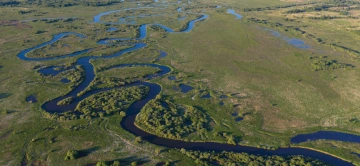
In response to climate change and increasingly frequent natural disasters, University of Arizona scientists are creating powerful tools that use AI to predict changes across the nation’s web of water systems.
Coastal storm surge can flood freshwater systems with saltwater. Heavy rains overwhelm waterways. Heat and drought dry up streams, concentrate pollutants in evaporating reservoirs and make environments dangerously vulnerable to fire. Weather can impact water systems in many ways – often with far-reaching effects – but sophisticated models are used mainly by researchers because they require extensive expertise. Tools that civil and federal professionals typically use for decision making rely on assumptions and oversimplifications from past events.
Laura Condon, assistant professor in the College of Science, is bridging that gap between widespread need and deep expertise. Funded by $5 million from the National Science Foundation, HydroGEN will offer the most comprehensive yet accessible predictive model of the nation’s watersheds.
Named for its ability to generate hydrologic scenarios, HydroGEN uses machine learning and AI to forecast variables like stream flow, soil moisture and groundwater. Computation and data storage for the platform are powered by CyVerse, a 15-year, $117 million investment by the NSF housed in U of A’s Data Science Institute.
Available publicly online once completed, the system will give community leaders, resource managers and policymakers easy-to-use, scientifically rigorous tools for decisions on water use for agriculture, managing wildfires and other critical needs.
